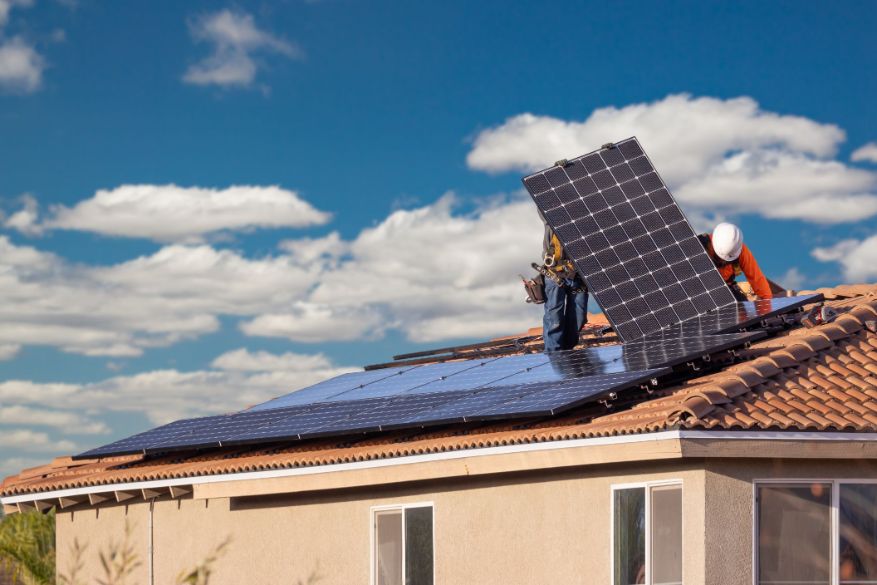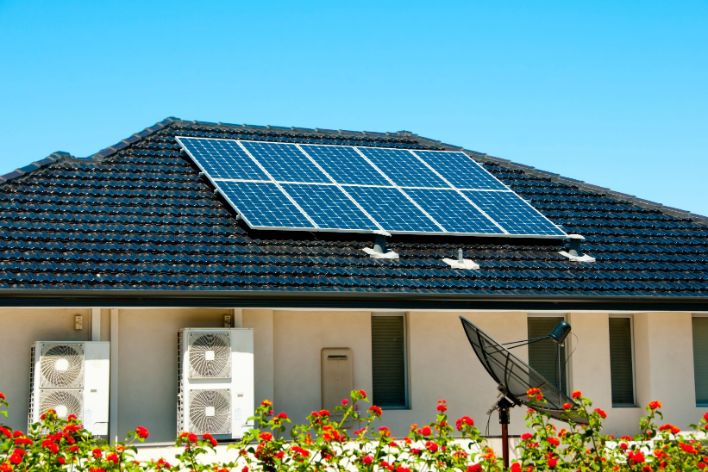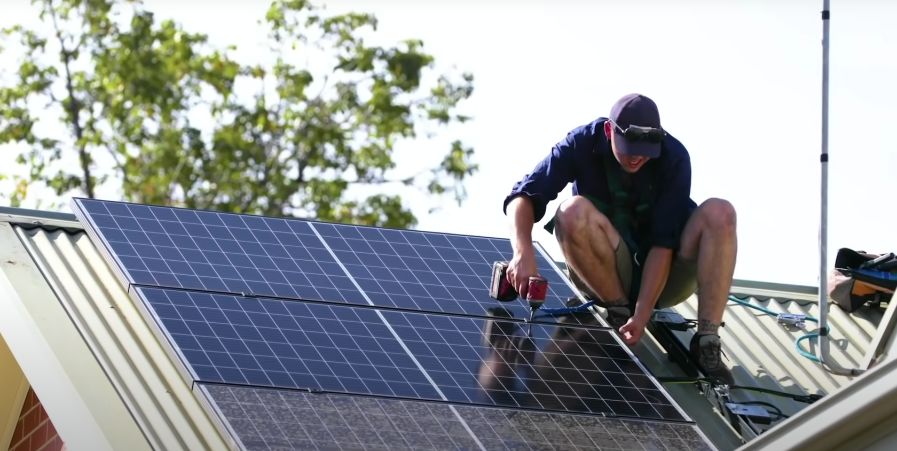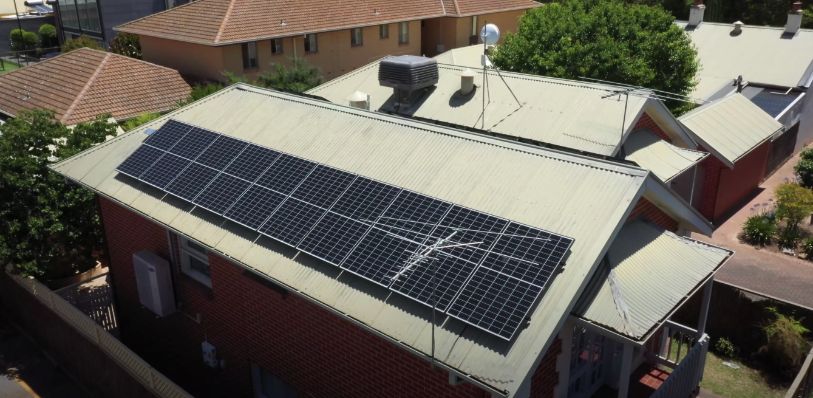Solar panels in Gippsland typically receive around 4.18 to 4.8 kilowatt-hours (kWh) of raw sunshine for every square metre each day. This means that a 1kW solar PV system at 100% efficiency can produce between 4.18 to 4.8 kWh of energy daily, while a 2Kw system can average around 8.36 to 9.6kWh.
It’s important to note that there will always be efficiency losses whenever sunlight passes through the solar panels and goes past their inverter. At Connected Solar Gippsland, we normally assume an efficiency loss of at least 25% for all Gippsland solar solutions we provide.
In this blog, we’ll discuss how solar power can help you save money and how much you can expect to save.
How Does Solar Power Save You Money?

Solar power helps save money by providing you with free electricity all year round as well as credits received for unused electricity sent back to the grid. This is known as a Feed-in Tariff. Although the upfront cost of installing a solar panel system may be high, you’ll benefit from the cost savings it gives for years to come.

Australia gets the most sunlight compared to any other place in the world today. In fact, the country has the highest solar square metre compared to other continents This means that you’ll be able to maximise your solar panels at home due to the amount of sunlight your system can absorb.
On average, households in Australia can get around 3,000 kWh of sunlight each year. This is a lot more compared to countries such as Germany, where homes only get about 1,500 kWh of sunlight annually.
Deciding to install a solar panel system in Australia is ideal because you can produce a lot of electricity from the sun alone. Solar panel maintenance is also relatively easy to perform.

How Much Money Can You Save With Solar?
An average family with a 6kW solar power system can enjoy savings reaching up to $1,500 per year on their energy bills. In addition, households that take advantage of solar power were also found to have about 20% lower energy bills compared to homes that don’t have one installed.
Besides that, solar households also get to reduce the greenhouse gas emissions they put out up to 7 tonnes annually, making a massive difference to the environment.
What makes solar for businesses and homeowners even more worthwhile to invest in are the benefits that the government is currently offering. There are a number of rebates available for people who choose to install solar panels. These incentives can significantly help offset the initial cost of installing solar panels at home.

Finally, the cost of installing solar panels in Australia has dropped dramatically in the past several years. As a result, homeowners will find that investing in solar is much more affordable compared to before.
According to a report, installing residential rooftop solar panels has fallen to around 50% of the cost since 2009. This is great news for homeowners who plan to make the switch since they can save even more money when they go solar.
